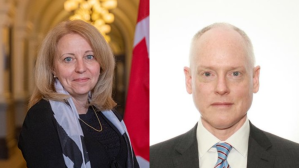GEF will lend a swadeshi touch to eco-projects
NEW DELHI, April 3: The massive, international eco-jamboree ended in the Capital today without clarifying its fancy nomenclature which has p...

NEW DELHI, April 3: The massive, international eco-jamboree ended in the Capital today without clarifying its fancy nomenclature which has prevented nations from executing projects to save the global environment. At conclusion of the first assembly of the Global Environment Facility (GEF), many delegates including the Indian contingent were unhappy that contentious issues like incremental costs and their application remained cloudy. Others, including delegates from many African and Latin American nations protested the exclusion of desertification in its focal areas.
On incremental costs, the New Delhi Statement, approved at the end of the assembly, said that its “definition should be made more understandable” and its application more pragmatic. Incremental costs refer to that component of a national project that goes towards offsetting a global environment concerns such as climate change or conservation of biodiversity.
On the other hand, one of the positives in the New Delhi Declaration adopted byvoice vote, was the greater stress on “country ownership of projects”.
Projects would now be framed according to national priorities rather than imposed by external agencies through foreign consultants.
The statement resolved to give priority to national interests which would go a long way towards protecting global environment, said Finance Minister Yashwant Sinha who was the chairman of the assembly.
He said with the $ 2.75 million second replenishment, there should be greater coordination at the national and international levels to promote a large number of projects.
The three-day session also resolved to streamline the project cycle with a view to making project preparation simple and more transparent.
There had been a great deal of criticism about delays on this count with projects sometimes taking up to three years to be cleared.
In addition, the Facility was under fire from non-governmental organisations (NGOs) and some developing countries being divorced from ground realities.
WhileNGOs called for greater public involvement and transperancy, representatives of developing countries like Brazil too were critical about its narrow focus.
Sinha noted that GEF focussed only on issues such as climate change, and ozone depletion, problems created by the industrialised western countries and which are not of immediate urgency in developing countries. But developing countries have to prove their projects solve environmental problems created in the first place by the West to get GEF funding.
Photos



- 01
- 02
- 03
- 04
- 05




























